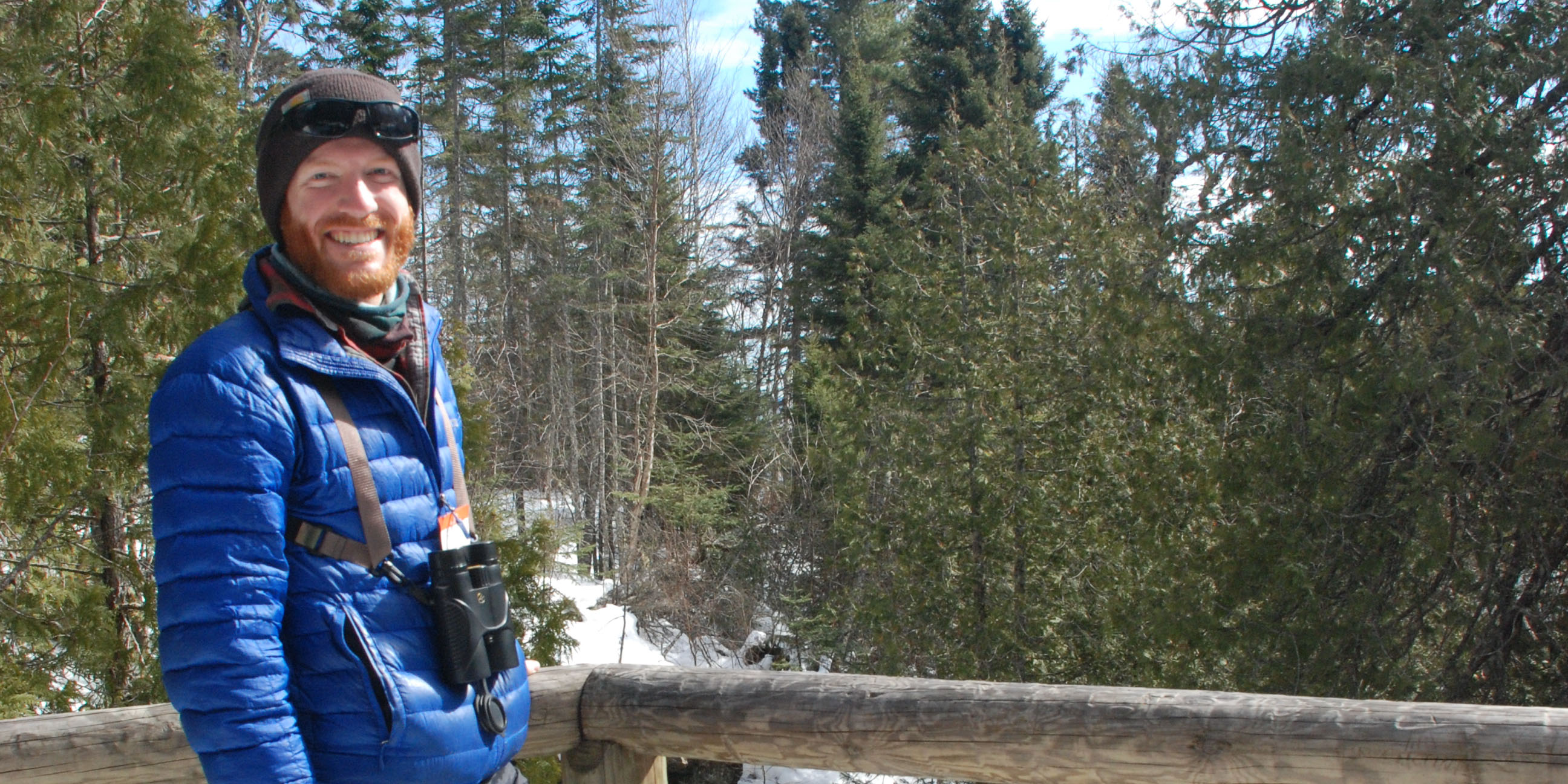This EEB Ph.D. candidate shares his thoughts on teaching, travelling and living out childhood dreams.

Graduate Program: Ecology, Evolution, and Behavior
Faculty advisor: Keith Barker
Hometown?
I’m originally from Mason, OH originally, a suburb north of Cincinnati.
What is your role in CBS?
During my time as a grad student here I’ve had a number of different roles, but I’ve most frequently been a graduate teaching assistant for several lab courses in the college. Since 2014, I’ve TA’d for Foundations, Evolution, Mammalogy, and, my favorite, Introduction to Ornithology. I’m TA’ing Ornithology for my third time this spring and am really excited for it once again!
What did you do before joining CBS? What led you to this position?
Prior to starting my PhD at the U, I was doing a year of service in California through the Student Conservation Association and AmeriCorps. I had done several short-term conservation-based service projects as an undergraduate and wanted to both A) see if I might want to pursue this line of work further on in my career and B) give myself a needed gap year between my undergraduate degree and grad school. My first eight months in California had me working with the Bureau of Land Management to restore desert tortoise habitat in mix-use recreation areas in the Mojave Desert, and my summer before starting at the U was spent doing trail work in Humboldt Redwoods State Park. It was an incredible, but back-breaking, year without a doubt.
You just returned from a field course in Costa Rica through Xavier University. Can you talk a little bit about that experience?
I originally went on this field course as a Xavier student over winter break of 2010-2011, during which I learned to ID common flora and fauna of Costa Rica, learned techniques for field research, and discussed issues of biodiversity and conservation in tropical regions around the world. It’s a phenomenal program that has students actively learning in a real-world, hands-on environment that they may not have experienced before. The main instructor for the course is my undergraduate advisor, with whom I’ve kept closely in touch, and I was invited to join the course as a volunteer teaching and field assistant last year. The trip I just returned from was my third to Costa Rica and my second as a teaching assistant. I helped the students with field ID, short-term research projects, developing hypotheses, and I led the morning bird walks every day. In addition to interacting with my great colleagues and bright students, I got the added benefit of seeing the logistics and behind-the-scenes work necessary for facilitating a field course like this, which is something I plan to do once I get a faculty position in the future.
What are some of your hobbies outside of work?
Perhaps unsurprisingly, I enjoy birding around the Twin Cities and Minnesota, but closer to home I love cooking and baking. I love traveling too, and often spend some downtime planning my next trip around food and birding.
What did you want to be when you were up?
I was an obsessive dinosaur kid. My parents always tell me that I could pronounce “Pachycephalosaurus” without issue but would stumble over the word “ketchup". I was certain that I was going to be a paleontologist and study the lives and extinction of dinosaurs. I joke with folks now that I’m the dinosaur kid that never grew up, because my dissertation research is focused on the large-scale evolutionary history of one special group of avian dinosaurs, the songbirds, that comprises over 50% of all living bird species.